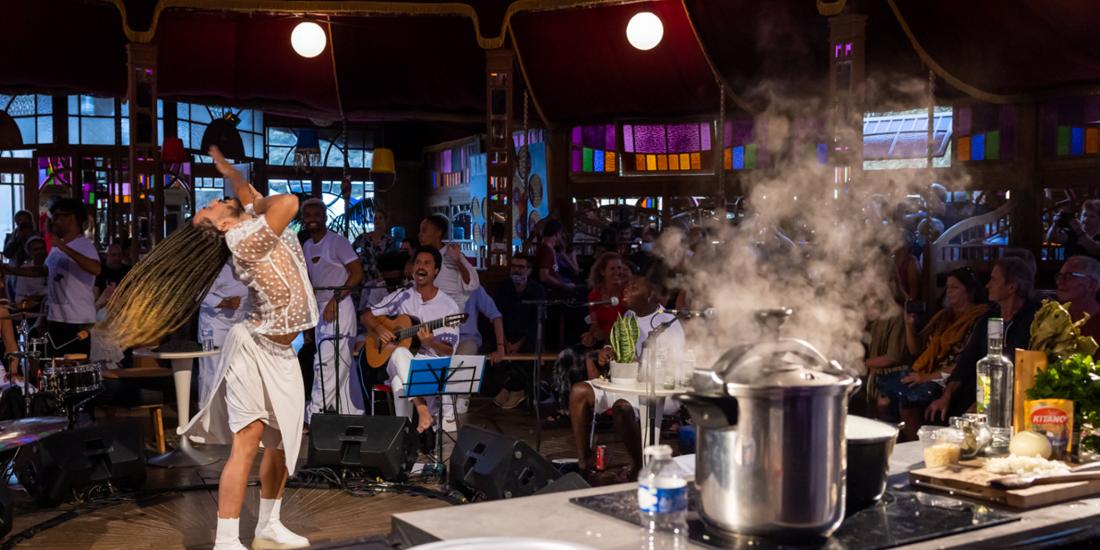Returning to the Horta Hall at Bozar, Calixto Neto's Feijoada, which first premiered in 2021, belongs to a lineage of performances shaped by key figures of the Brazilian artistic scene. The piece makes direct reference to Lia Rodrigues and Luiz de Abreu, transforming the stage into a space of symbolic and collective struggle. In this sense, the gastronomic performance by Brazilian dancer and choreographer Calixto Neto is about more than conviviality.
This performance addresses profoundly political themes — colonial history, slavery, systemic racism — without ever resorting to didacticism or confrontation. Instead, Calixto Neto engages the audience through the senses. The live preparation on stage of the feijoada, traditional Brazilian stew, accompanied by percussion, voices, and storytelling; the intimacy of the performers; and, at times, their nudity, awaken both bodily and collective memory. A space emerges where past and present blur. This theatrical and performative approach challenges conventional audience expectations. Rooted in a strong sensory dimension, it offers a non-intellectual yet deeply emotional entry point into the wounds of history. It stirs, provokes empathy, and generates tension, prompting reflection not through demonstration, but through sensation.
After the performance, the audience is invited to share in a tasting of the feijoada alongside the artistic team.




